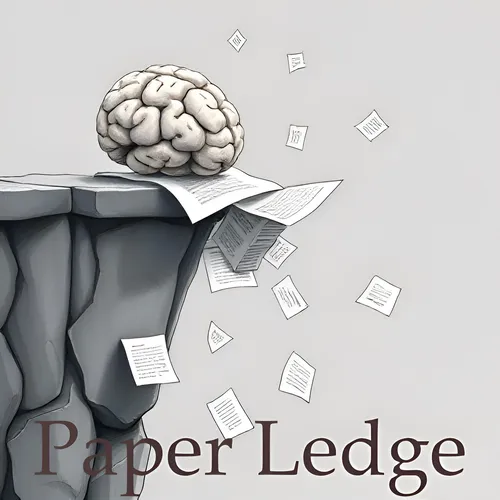Artificial Intelligence - Improved Generalized Planning with LLMs through Strategy Refinement and Reflection
- Author
- ernestasposkus
- Published
- Wed 20 Aug 2025
- Episode Link
- https://www.paperledge.com/e/artificial-intelligence-improved-generalized-planning-with-llms-through-strategy-refinement-and-reflection/
Hey PaperLedge crew, Ernis here, ready to dive into some brain-tickling research! Today, we're looking at a paper that's trying to get Large Language Models – think super-smart AIs like ChatGPT – to become expert planners.
Imagine you're trying to pack for a trip. A specific plan would be: pack your toothbrush, pack your socks, pack your passport. But what if you wanted a generalized plan that works for any trip? Something like: "First, make a list of essentials. Then, gather those items and pack them in your suitcase." That's the kind of smarts this paper is after.
Now, traditionally, AI planners use something called PDDL – the Planning Domain Definition Language. It's a way of formally describing planning problems. This paper, however, is trying something cooler: getting LLMs to write Python code that automatically creates these generalized plans in PDDL. Think of it like teaching an AI to write a planning textbook!
So, how does it work? The researchers built on some previous work that had a three-step process:
- First, the LLM gets a description of a planning problem (like the trip packing example) and writes a plain English summary and a possible packing strategy.
- Then, the LLM translates that strategy into a Python program.
- Finally, the program gets tested and debugged on example packing scenarios.
But here’s the problem: the old approach only generated one strategy. If that initial strategy was flawed, the whole thing would fall apart! It's like building a house on a shaky foundation.
This new paper adds some key improvements to make the process much more robust:
- Pseudocode Debugging: Instead of directly writing Python code, the LLM first creates the strategy as pseudocode. Pseudocode is like a rough draft of the code, written in plain language. This allows the researchers to debug the strategy itself before it even gets translated into Python. Think of it as sketching out your blueprint before you start laying bricks.
- AI Reflection: If the Python code fails, the LLM doesn't just give up. It's prompted to reflect on why the plan failed. It's like asking the AI, "Okay, what went wrong? Where did you mess up?" This helps it learn from its mistakes.
- Multiple Attempts: Inspired by how LLMs generate code, the researchers have the LLM create multiple versions of the Python program. Then, they pick the best one. It’s like brainstorming multiple solutions and choosing the most promising.
"These extensions substantially improve (and never deteriorate) the quality of the generalized plans."
The results? In 12 out of 17 benchmark planning problems, their best Python programs solved all the tasks! That's a huge improvement.
So, why does this matter? Well, for AI researchers, it's a big step towards creating more autonomous and reliable planning systems. For businesses, it could lead to more efficient automation of complex tasks. And for the rest of us, it's just plain cool to see AI tackling challenging problems and learning from its mistakes!
Now, a few questions that popped into my head while reading this:
- Could this approach be applied to other types of problem-solving beyond planning? For example, could an LLM learn to write generalized strategies for game playing or scientific discovery?
- How much does the success of this approach depend on the specific prompts used to guide the LLM? Could cleverly designed prompts unlock even better performance?
Credit to Paper authors: Katharina Stein, Nils Hodel, Daniel Fišer, Jörg Hoffmann, Michael Katz, Alexander Koller
